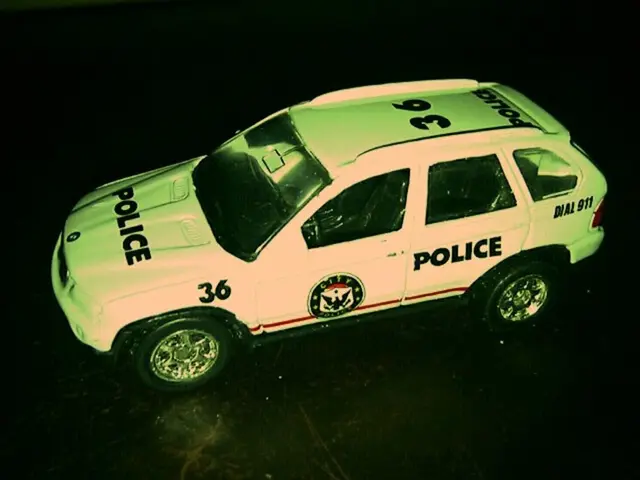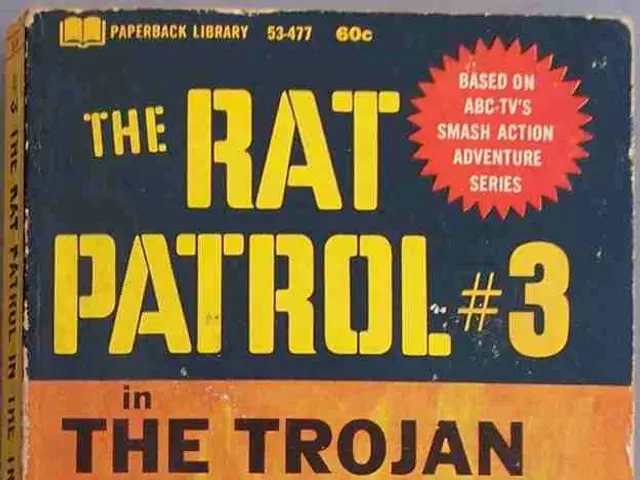Strange Wavelengths
The Apocalypse or the Lasting Impact of the Cold War: Insights from the "Radio of Doomsday" Broadcast
On June 2, the airwaves hummed with an odd tune at the frequency of 4625 kHz. The "Doomsday Radio" station, as it's colloquially known, blared out two encoded messages: at 16:00 Moscow time, the word "ibobaza" echoed, and at 17:32 - "arapoblitz." Radio enthusiasts, far from surprised by these cryptic broadcasts, have long been intrigued by the mysteries that shroud this station.
The origins of the "Doomsday Radio" date back to the 70s or the 80s, though its precise inception remains a mystery. It wasn't until 1992, when the signal began interrupting every hour with two brief buzzes, that it earned its ominous nickname, "The Buzzer." Its call sign, UVB-76, is a mis-transcription of the original, UZB-76. Since the early 2010s, "The Buzzer" has switched between MDZH, ZHOZ, ANVF, and NJTI.
Many claim that the broadcasts are operated by Russian military personnel, but the exact purpose and nature of their communications remain shrouded in secrecy. Researchers believe the signal originates from Moscow, Leningrad, and Pskov regions. Previous triangulation efforts suggest that the station was once located in the town of Povarovo, Moscow region. Onsite investigations revealed an abandoned military base, featuring a bunker and a logbook containing records of messages transmitted by "The Buzzer."
Theories about the purpose of "The Buzzer" abound, ranging from responses to potential nuclear strikes to espionage codes. Reports on the topic may be found in Popular Mechanics, which touches on extraterrestrial communication, ionosphere research, and secret developments linked to the Chernobyl disaster.
Unconfirmed reports hint at the existence of two more stations owned by the Russian Armed Forces: "Squeaky Wheel" and "Whistler." Both stations have earned their names due to the distinctive sounds they transmit. For instance, "Whistler," as explained by radio amateurs, emits a whistling sound around 50 times a minute. Their meanings, however, remain undeciphered.
Numerary stations like "Buzzer" are known for their enigmatic broadcasts consisting of sequences of numbers, letters, and words. Rare instances of intelligible phrases and sentences do crop up: "Press the 'Reset' button," "Agronomist exits through the gate," "Inflatable rescue boat." Attempts to link these phrases to real-world events have borne little fruit. The most messages ever broadcast occurred on September 18, 2024, with the words "effeminate," "geophysics," "lastost," "klevok," and "doorkeeper" being transmitted.
"Even in the Soviet Union," military expert Valery Shiryaev recounted, "there was a society dedicated to studying 'The Buzzer.' Some believed they were communicating with parallel worlds or extraterrestrial civilizations the state wasn't telling us about. I have no explanation for numerary radio stations. Some believe they're part of a system managing Russian submarines, but this system is organized on completely different principles. In the end, it's all just conspiracy theories."
Earlier enthusiasts assumed the broadcasts were coming from Soviet territory. During the Cold War, they believed the station played a role in the ideological struggle between the Kremlin and Western nations. However, these theories didn't explain the increase in broadcast activity after the USSR's collapse or the rare instances of strange sounds, such as shuffling steps and a woman's scream.
Incidents continued into 2024 when, in December, the standard "Buzzer" broadcast was abruptly interrupted by the song "I'm Russian" by Shaman and music from Tchaikovsky's ballet "Swan Lake." estonian entrepreneur Andres Aaslaid took advantage of the commotion and turned the broadcast into a global phenomenon, referring to shortwave radio stations as "the early form of the internet."
Now, Aaslaid's website with the broadcast is inactive, but in the early 2010s, it was visited by hundreds of thousands of users from around the world, from the US to Japan. All were drawn in by the allure of unraveling "The Buzzer's" mystery.
- In the spirit of innovation, a new website is proposed to keep track of the mysterious "Whistler" and "Squeaky Wheel" stations, comparable to the Internet's early form of shortwave radio stations.
- Amid the flurry of modern technology, weather forecasts and sports updates often seem mundane compared to the tantalizing secrets whispered by enigmatic stations like "Whistler."








